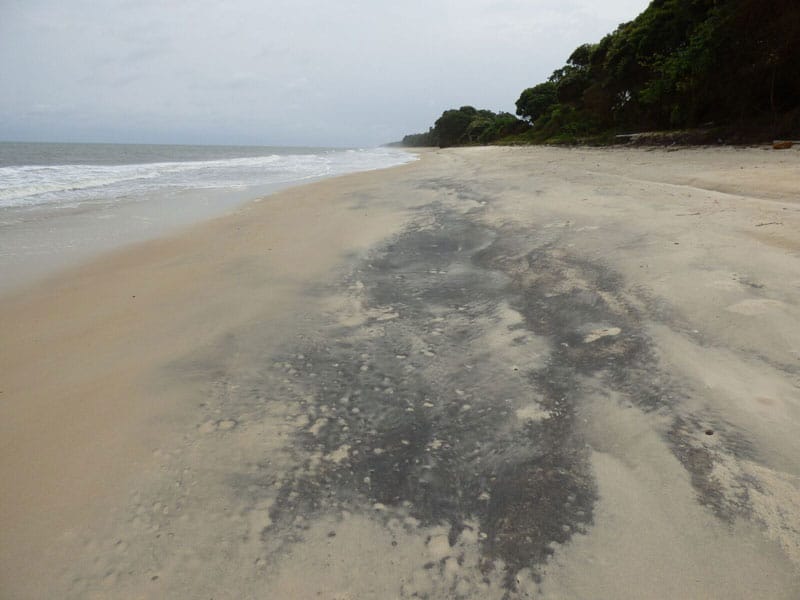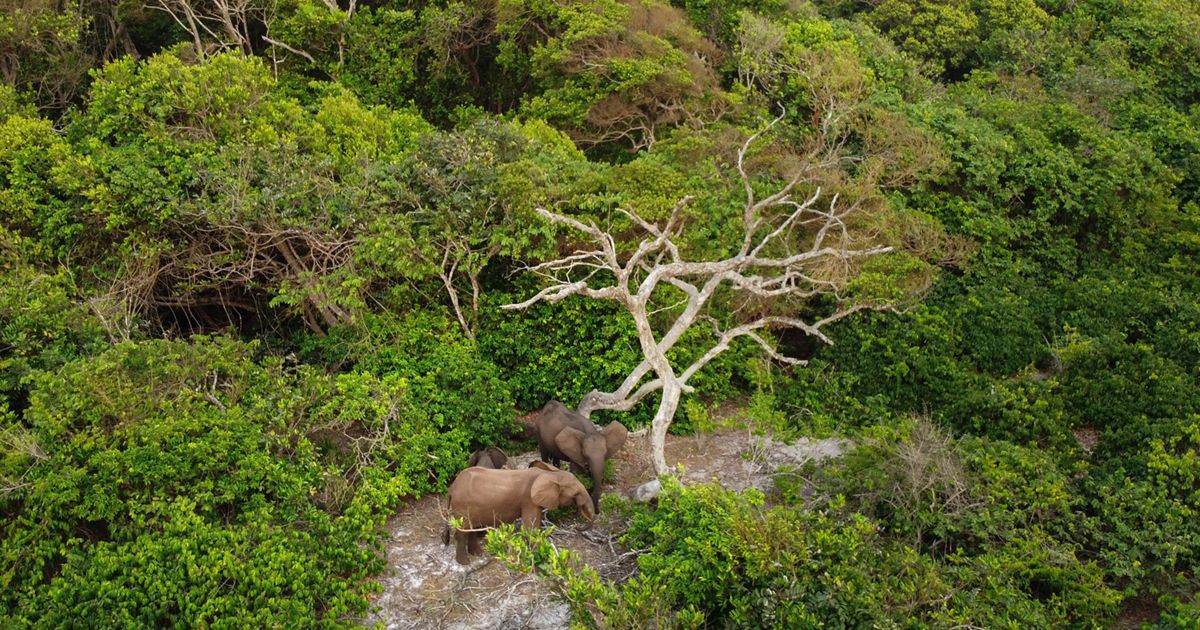Science
A $500 Million Deal To Restore Gabon Coastlines Reignites Climate Finance Debate

DAKAR, Senegal — On Tuesday, an influential conservation organization said that Gabon would employ a contentious financial strategy to reduce its debt load and restore its oceans simultaneously.
According to a press statement from The Nature Conservancy, the international environmental group that assisted in the transaction’s brokering, it is the second-largest sale of its sort to date and the first on the continent of Africa.
The world’s largest population of leatherback turtles and numerous other endangered species are found in Gabon, a country in Central Africa that is wealthy in oil and is noted for its biodiversity. According to TNC, by refinancing $500 million of its foreign debt, Gabon will have $163 million extra to spend on expanding its protected coastal regions and battling illegal overfishing.
Lee White, the minister of water, forests, seas, and the environment of Gabon, called it “a really interesting way of slightly reducing our debt repayments and also generating money for conservation.” To raise money for conservation, he worked with TNC, Bank of America, and other financial institutions to negotiate lower interest rates on Gabon’s foreign debt.
TNC has successfully executed comparable “blue bond” arrangements in the Seychelles, Belize, and Barbados since 2016. However, despite donors and host governments promoting climate refinancing as a solution that benefits debtor countries, residents, and the environment, detractors claim that such agreements just scratch the surface of what is required to combat climate change.
A conservation organization said that Gabon would employ a contentious financial strategy to reduce its debt load and restore its oceans simultaneously.
According to sustainable finance researcher Frederic Hache, “This seems like a great deal at first glance, but when you look at the details… the money that is being freed up for conservation is typically a tiny fraction of the deal.”
According to White, only $4.5 million of the $163 million TNC claims to go towards Gabon’s ocean conservation activities will be immediately available each year through 2038.
Hache remarked, “That’s a joke, to be honest, especially for an oil-rich nation like Gabon.” According to the World Bank, Gabon has the third-highest GDP per capita in sub-Saharan Africa, with an average annual income of around $9,000.
The remaining $500,000,000 from the TNC transaction will be used to pay down Gabon’s newly reorganized debt and transaction expenses to Bank of America and other parties engaged in the transaction.
According to Slav Gatchev, director of TNC’s sustainable debt section, the costs will be “competitive and reasonable.”
Even if the agreement worked, there would still be questions regarding Gabon’s independence, according to Hache. In the past, detractors have claimed that “debt-for-nature swaps” violate the national sovereignty of indebted nations by giving foreign organizations control over financial and environmental decisions.
A conservation organization said that Gabon would employ a contentious financial strategy to reduce its debt load and restore its oceans simultaneously.
White claims that a U.S.-based nonprofit will oversee the new cash for Gabon. “Getting them offshore and limiting the number of government representatives on them is kind of standard practise on these conservation trust funds,” he said.
Blue bonds, according to Gatchev, are the independent product of nations that value the environment, and they represent no threat to national sovereignty. “We don’t instruct governments on what to do… Parliament in Gabon convened and decided on these transactions,” he stated.
Both supporters and opponents of the Gabon agreement concur that countries must go beyond blue bonds and other conservation funding to combat climate change.
“We don’t claim, not even for a second, that these transactions are a panacea,” Gatchev added.
For the Global North, he said, “this is one small way to at least partially fulfil its funding commitments for climate and conservation.” According to a 2020 Oxfam research, wealthy nations still need to commit to providing the $100 billion per year they promised to fight climate change in developing countries during a summit in 2009.
However, the Gabon agreement and other debt-for-nature swaps are criticized as doing more harm than good. Hache believes that the richest and most polluting countries, whose governments and businesses enable the agreements in lower-income countries, shouldn’t be exempt from responsibility for reducing their own emissions.
The subject of debt forgiveness is being further sidestepped, he claimed.
SOURCE – (AP)































